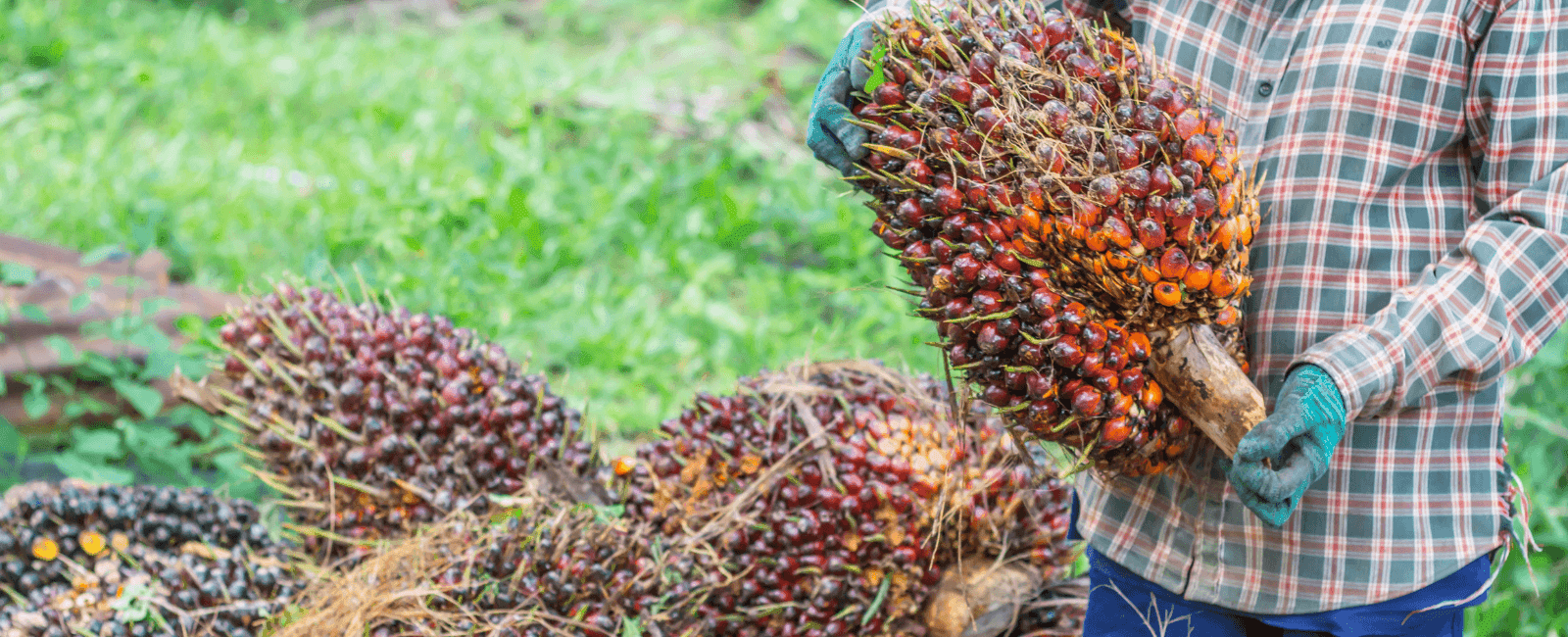

Palm oil production is a major export for countries like Malaysia and Indonesia, which represent over 80% of palm oil production. The palm oil industry contributes significantly to their national economies, accounting for a significant portion of their GDP. However, the environmental impact of these practices raises considerable concerns, especially regarding deforestation.
Between 1995 and 2000, 54% of palm oil production took place on land that had been cleared of forests, and these numbers continue to grow. As a result, landscapes have been significantly altered, and ecosystems have suffered immensely. Critically endangered species like orangutans and Sumatran tigers have rapidly declining populations that will unlikely recover if deforestation continues to destroy and fragment their habitats.
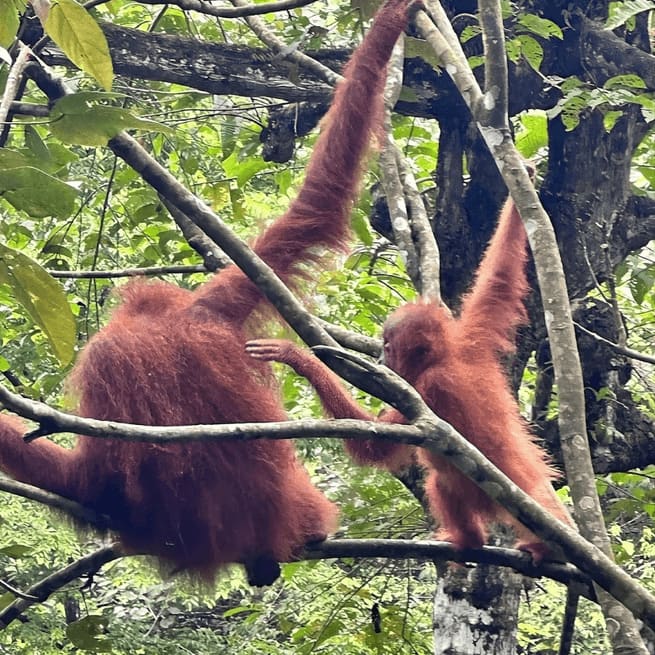
Nonetheless, locals within these communities, especially on islands like Sumatra and Borneo, rely heavily on the palm oil industry as a source of employment. In fact, the economic stability of these regions is heavily dependent on this market, as it plays a significant role in rural development and poverty reduction. Despite the terrible consequences that palm oil plantations have on the environment, there is a pressing need to balance economic interests with environmental sustainability.
During my month-long stay in Indonesia, I was struck by the vast expanses of oil palm plantations in Sumatra, which seemed endless compared to the shrinking patches of rainforest. This contrast was particularly stark around the Bahorok River, where I stayed adjacent to some of Sumatra’s last remaining natural forests. Back in 1985, these forests covered 57% of Sumatra’s mainland, but as of 2016, they have dwindled to nearly 25%. Witnessing such a dramatic loss of biodiversity was heartbreaking, but it became evident that there was a broader context to consider. My conversations with locals revealed a more complex sentiment: they mourned the loss of their natural heritage yet were deeply concerned about the economic impact of declining palm oil demand, driven by changing market trends and global boycotts.
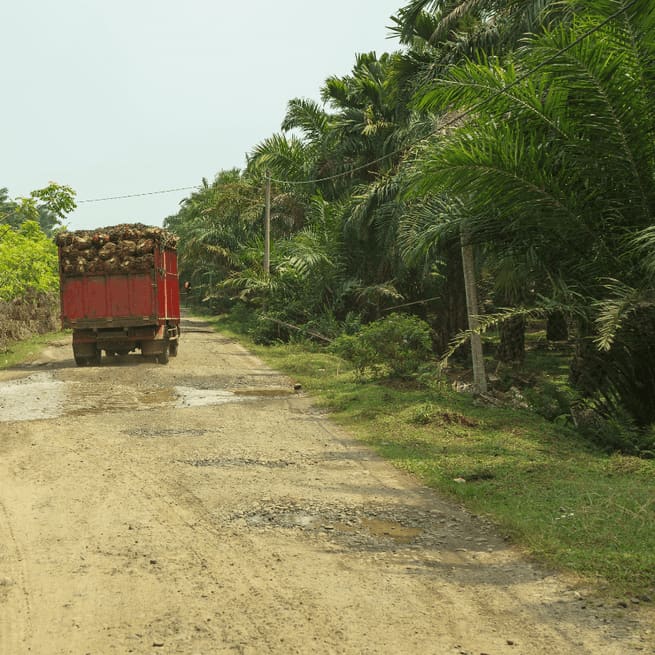
This complicated dynamic illustrates the dilemma faced by many developing economies: how to mediate ecological preservation with economic growth. The search for viable solutions has spurred debates on alternative and sustainable economic activities that could coexist with or even enhance environmental conservation efforts. One innovative strategy explored involves using palm oil-related agricultural biomass as a substrate for mushroom cultivation, specifically the grey oyster mushroom. Oil palm waste is a growing issue in places with large palm oil industries due to the massive volumes of agricultural byproducts it generates and the environmental impacts associated with waste management. Although oil palm byproducts have the potential to be turned into valuable products like bioenergy and biofertilizers, areas that create large amounts of waste often miss out on these opportunities because of a lack of technology, infrastructure, or investment in waste-to-value processes.
Converting this waste into a substrate not only helps tackle the issue of excess byproducts but also supports small-scale farmers and entrepreneurs looking for sustainable business opportunities.
The global mushroom market is expected to grow from 15.25 million tonnes in 2021 to 24.05 million tonnes by 2028, with a compound annual growth rate (CAGR) of 6.74%. Therefore, the economic value of mushrooms is expected to rise in the coming years. In order to fulfill market demands, growers require a quality substrate on which to grow their mushrooms. While grey oyster mushrooms are typically cultivated on a substrate comprised of rubber tree sawdust, mushroom growers often face issues with supplying these materials. Rubber sawdust is also used for other industries, making it a less available and more expensive substrate.
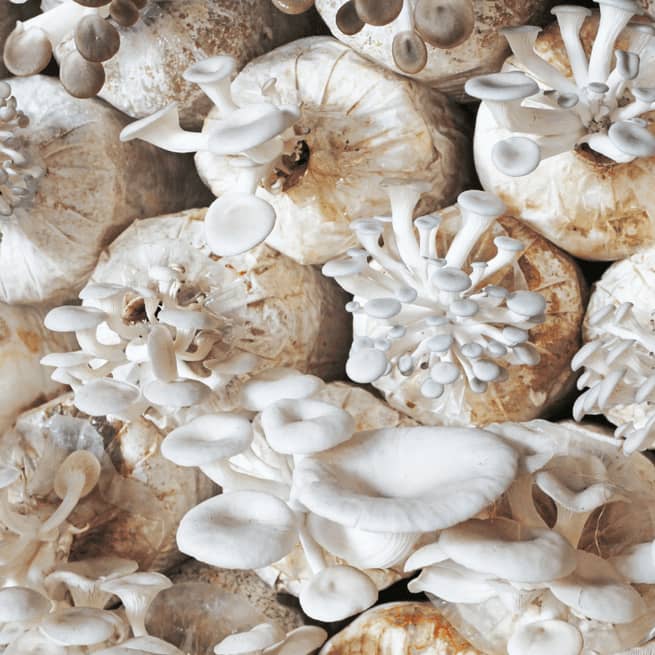
In comparison, oil palm substrate is significantly cheaper, at 20-30% of the cost of rubber sawdust. Moreover, research indicates that mushrooms grown on oil palm substrate demonstrate comparable growth rates and yields to those cultivated on rubber tree sawdust (1). Small-scale farmers and entrepreneurs can capitalize on this opportunity to diversify their income streams and enhance resilience against market fluctuations. By leveraging what was once considered waste, these substrates provide a dual benefit: they contribute to environmental sustainability and improve the profitability of mushroom cultivation. This approach is especially beneficial in regions like Sumatra, where economic activities are highly dependent on agricultural outputs. The ability to cultivate mushrooms on palm substrates provides a scalable opportunity for local farmers to engage in a more diverse range of agricultural activities, thus reducing economic risk and lowering the environmental footprint of their practices.
This agricultural model also introduces an additional layer of value through the production of mushroom crackers from unsold mushrooms. Given their relatively short shelf life, mushrooms often experience high postharvest losses, particularly in rural areas. By processing mushrooms that would otherwise go to waste into a sustainable and nutritious snack, this initiative effectively turns a potential loss into a valuable food product. Crackers made from mushrooms are high in essential nutrients, especially compared to commercial potato crackers, and their flavor and texture were extremely liked by study participants. With more health-conscious consumers searching for nutritious snack options, mushroom crackers offer a compelling alternative. This innovative snack minimizes losses for mushroom producers and positions them in a niche market segment that values both environmental responsibility and nutritional benefits.
Integrating sustainability into every step of the production processes – from recycling agricultural waste to the commercialization of mushroom-based snacks – exemplifies how agricultural practices can evolve to meet the demands of modern markets while still addressing environmental and economic challenges. The process of transforming oil palm waste into other resources as a means of economic development serves as a reminder that innovative solutions can emerge when sustainability is a core component of business strategies.
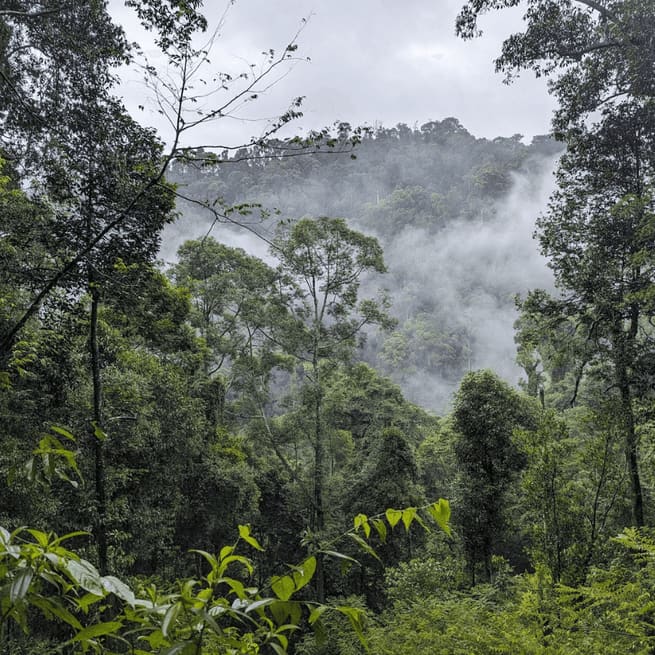
As easy as it is to demonize the palm oil industry from an outsider’s perspective, it’s crucial to recognize the bigger picture and the intricate realities faced by those within the industry itself. For many communities across the globe, the palm oil sector isn’t just a source of ecological distress but also a vital lifeline for economic survival. Because of this deep-rooted dependency, we must come up with balanced solutions that don’t merely condemn an entire industry but rather seek to reform it from within through sustainable innovations and community-focused economic alternatives. As such, the shift towards using oil palm waste for mushroom substrates isn’t just an environmental corrective measure – it’s a transformative approach that empowers local communities, ensuring they are not left vulnerable by the very solutions meant to protect their environment.
Environmental conservation and economic development do not have to be competing interests. There is still potential for both to be synergistically aligned for mutual benefit. Regions dependent on controversial industries like palm oil can be led by example, demonstrating how sustainable practices can indeed be woven into the fabric of existing economic structures. By adopting such innovative practices, communities can thrive without compromising their environmental or financial stability. Therefore, as we move forward, we must continue promoting such initiatives and developing new sustainable practices that cause more help than harm. Only through such inclusive strategies can we hope to achieve a just system that respects both the planet and its people. This is the true challenge of sustainability in the 21st century – establishing systems that support the diverse needs of global populations by acknowledging the unique circumstances of each region and adapting to the specific environmental and economic contexts found there.
References
- L Naher, Asmahani BK Nor, Ayu NMS Siti, Raihan NH Nik, MFG Hanisah, MZ Norhafizah, AR Nurhanan, CY Huck, and Mokhtar Seri Intan. 2024. “An Economical Substrate Formulation of Mushroom Cultivation and Food Product of Mushroom Cracker to Reduce Postharvest Waste.” Studies in Fungi 9 (1). https://doi.org/10.48130/sif-2024-0003.


